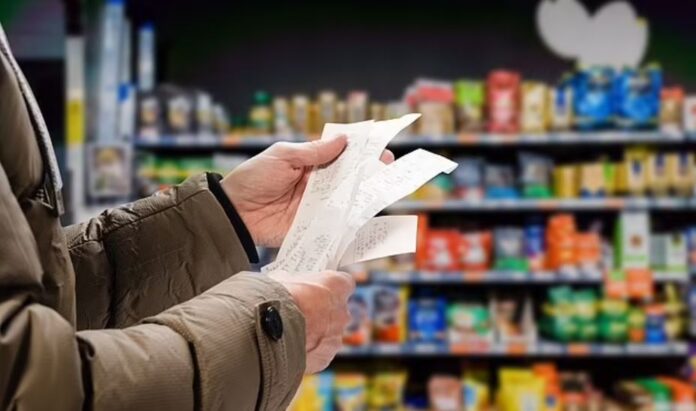Arab Finance: Economic experts and analysts called for the government to take a number of measures to control… Inflation Which currently exceeds about 26%.
Data from the Central Bureau of Statistics in Egypt showed that annual inflation in Egyptian cities rose slightly to 26.5% in October from 26.4% last September, due to the rise in fuel prices.
The Egyptian government raised fuel prices by 9.2% in October, and this was the third increase this year.
Government measures to control inflation
Dr. Ezz El-Din Hassanein, an economic and banking expert, said in exclusive statements to Arab Finance that the Egyptian market is characterized as a monopolistic market, so the government should intervene with some measures to control the rise in prices and the current inflation, create balance in the market and break the monopoly, especially with the rise in gasoline and diesel prices, which have contributed to Most prices have risen recently.
Hassanein added that the government is currently pumping more basic food commodities into consumer malls, in order to increase the supply of these products and provide the necessary services at reasonable prices to citizens with a small profit margin. This, of course, happens during economic crises through interventions by the state to stabilize the markets. The state is also trying to achieve balance in some sectors other than food commodities, such as the real estate sector, as countries are building more new cities and social and medium-sized housing, which has led to an increase in supply, which has actually led to a decline in real estate prices in the recent period, as the government offers prices at less than the current market price. .
Hassanein explained that the trade deficit in Egypt increased by 21% over last year, and this of course has a major impact on the rise in inflation rates, as 90% of inflation in Egypt is caused by the rise in the exchange rate of the dollar against the Egyptian pound, which has currently reached levels of 48 and 49 pounds instead. From 16 and 18 pounds until the end of 2022, and therefore the price of the dollar against the pound has increased threefold in two years, which of course affects inflation and rising prices in Egypt, as Egypt relies heavily on importing most of its needs. From abroad, which places a burden on the state budget and creates a strong demand for foreign exchange.
Hassanein expected oil prices to stabilize globally during the beginning of US President Donald Trump’s rule during his assumption of the presidency next January, especially with the large US oil reserves as well as European reserves, pointing out that what affects the price of fuel in Egypt is the exchange rate, as Egypt imports most petroleum goods from outside.
Mechanisms of the Central Bank of Egypt to control inflation
For his part, Dr. Rashad Abdo, economic expert and head of the Egyptian Forum for Economic and Strategic Studies, said that the Central Bank of Egypt is taking a number of measures to control inflation, including withdrawing money from the markets with the aim of reducing its supply, and thus reducing the demand for goods, and then reducing prices as a result of the decline in demand. On goods and services. The central bank also raises the interest rate for the same purpose so that more savings are pumped into the banks, thus reducing the money supply with the aim of reducing demand for goods and services, which lowers prices and contributes to controlling inflation.
Abdo explained that geopolitical conditions and the current war in Gaza and Lebanon affect oil and fuel prices, which could have an impact on energy prices in Egypt if the war continues, as the price of fuel is expected to rise, which forces the government to raise gasoline prices as a result of the rise. Prices worldwide.
It is noteworthy that during the past few months, the government raised the prices of gasoline, diesel, and train and subway tickets, which was followed by increases in the prices of many other goods and services. The rises of the past few months were not the first, as the government, at the end of last May, raised the price of a loaf of subsidized bread by 300%, in a step that was the first in more than 3 decades.
The government had raised the value of subsidies for bread and food supplies in its budget for the current fiscal year by about 5% to 134.2 billion pounds.
During the last fiscal year, the government implemented two packages to ease the living burdens on citizens worth 240 billion pounds. The first was in September 2023, when President Abdel Fattah El-Sisi directed the government to increase the exceptional cost of living allowance for public sector employees to 600 pounds, instead of 300 pounds, and to increase the limit. The minimum income for the sixth grade is 4,000 pounds, instead of 3,500 pounds. Then last February, the government decided to raise the minimum wage by 50% to reach 6 thousand pounds per month.
Egyptian budget data for 2024-2025 revealed that more than 50% of state revenues were allocated to social spending on support, social protection, and human development, and allocations for support and social spending were raised to 635.9 billion pounds, compared to 529.7 billion pounds in the last fiscal year, with an annual growth rate of 20%. %.
Related news

